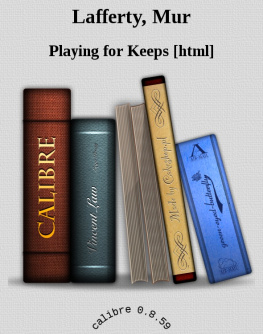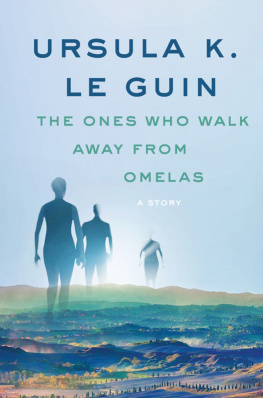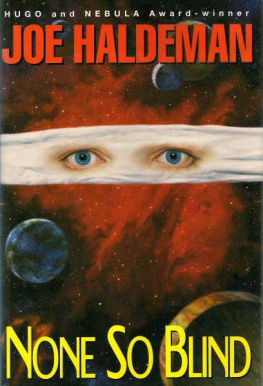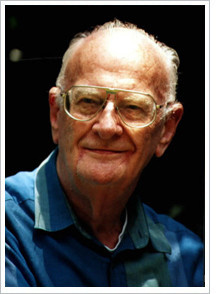R. LAFFERTY - Eurema's Dam
Here you can read online R. LAFFERTY - Eurema's Dam full text of the book (entire story) in english for free. Download pdf and epub, get meaning, cover and reviews about this ebook. year: 1972, publisher: Doubleday, genre: Science fiction. Description of the work, (preface) as well as reviews are available. Best literature library LitArk.com created for fans of good reading and offers a wide selection of genres:
Romance novel
Science fiction
Adventure
Detective
Science
History
Home and family
Prose
Art
Politics
Computer
Non-fiction
Religion
Business
Children
Humor
Choose a favorite category and find really read worthwhile books. Enjoy immersion in the world of imagination, feel the emotions of the characters or learn something new for yourself, make an fascinating discovery.

- Book:Eurema's Dam
- Author:
- Publisher:Doubleday
- Genre:
- Year:1972
- ISBN:0-385-09141-9
- Rating:3 / 5
- Favourites:Add to favourites
- Your mark:
- 60
- 1
- 2
- 3
- 4
- 5
Eurema's Dam: summary, description and annotation
We offer to read an annotation, description, summary or preface (depends on what the author of the book "Eurema's Dam" wrote himself). If you haven't found the necessary information about the book — write in the comments, we will try to find it.
Eurema's Dam — read online for free the complete book (whole text) full work
Below is the text of the book, divided by pages. System saving the place of the last page read, allows you to conveniently read the book "Eurema's Dam" online for free, without having to search again every time where you left off. Put a bookmark, and you can go to the page where you finished reading at any time.
Font size:
Interval:
Bookmark:
Euremas Dam
by R. A. Lafferty
He was about the last of them.
What? The last of the great individualists? The last of the true creative geniuses of the century? The last of the sheer precursors?
No. No. He was the last of the dolts.
Kids were being born smarter all the time when he came along, and they would be so forever more. He was about the last dumb kid ever born.
Even his mother had to admit that Albert was a slow child. What else can you call a boy who doesnt begin to talk till he is four years old, who wont learn to handle a spoon till he is six, who cant operate a doorknob till he is eight? What else can you say about one who put his shoes on the wrong feet and walked in pain? And who had to be told to close his mouth after yawning?
Some things would always be beyond himlike whether it was the big hand or the little hand of the clock that told the hours. But this wasnt something serious. He never did care what time it was.
When, about the middle of his ninth year, Albert made a breakthrough at telling his right hand from his left, he did it by the most ridiculous set of mnemonics ever put together. It had to do with the way a dog turns around before lying down, the direction of whirlpools and whirlwinds, the side a cow is milked from and a horse is mounted from, the direction of twist of oak and sycamore leaves, the maze patterns of rock moss and of tree moss, the cleavage of limestone, the direction of a hawks wheeling, of a shrikes hunting, and of a snakes coiling (remembering that the mountain boomer is an exception, and that it isnt a true snake), the lay of cedar fronds and of balsam fronds, the twist of a hole dug by a skunk and by a badger (remembering pungently that skunks sometimes use old badger holes). Well, Albert finally learned to remember which was right and which was left, but an observant boy would have learned his right hand from his left without all that nonsense.
Albert never learned to write a readable hand. To get by in school he cheated. From a bicycle speedometer, a midget motor, tiny eccentric cams, and batteries stolen from his grandfathers hearing aid, Albert made a machine to write for him. It was small as a doodlebug and fitted onto a pen or pencil so that Albert could conceal it with his fingers. It formed the letters beautifully as Albert had set the cams to follow a copybook model. He triggered the different letters with keys no bigger than whiskers. Sure it was crooked, but what else can you do when youre too dumb to learn how to write passably?
Albert couldnt figure at all. He had to make another machine to figure for him. It was a palm-of-the-hand thing that would add and subtract and multiply and divide. The next year when he was in the ninth grade they gave him algebra, and he had to devise a flipper to go on the end of his gadget to work quadratic and simultaneous equations. If it werent for such cheating Albert wouldnt have gotten any marks at all in school.
He had another difficulty when he came to his fifteenth year. People, that is an understatement. There should be a stronger word than difficulty for it. Albert was afraid of girls.
What to do?
I will build me a machine that is not afraid of girls, Albert said. He set to work on it. He had it nearly finished when a thought came to him: But no machine is afraid of girls. How will this help me?
His logic was at fault and analogy broke down. He did what he always did. He cheated.
He took the programming rollers out of an old player piano in the attic, found a gear case that would serve, used magnetized sheets instead of perforated music rolls, fed a copy of Wormwoods Logic into the matrix, and he had a logic machine that would answer questions.
Whats the matter with me that Im afraid of girls? Albert asked his logic machine.
Nothing the matter with you, the logic machine told him. Its logical to be afraid of girls. They seem pretty spooky to me too.
But what can I do about it?
Wait for time and circumstances. They sure are slow. Unless you want to cheat
Yes, yes, what then?
Build a machine that looks just like you, Albert, and talks just like you. Only make it smarter than you are, and not bashful. And, ah, Albert, theres a special thing youd better put into it in case things go wrong. Ill whisper it to you. Its dangerous.
So Albert made Little Danny, a dummy who looked like him and talked like him, only he was smarter and not bashful. He filled Little Danny with quips from Mad Magazine and from Quip, and then they were set.
Albert and Little Danny went to call on Alice.
Why, hes wonderful, Alice said. Why cant you be like that, Albert? Arent you wonderful, Little Danny. Why do you have to be so stupid, Albert, when Little Danny is so wonderful?
I, uh, uh, I dont know, Albert said. Uh, uh, uh.
He sounds like a fish with the hiccups, Little Danny said.
You do, Albert, really you do! Alice screamed. Why cant you say smart things like Little Danny does, Albert? Why are you so stupid?
This wasnt working out very well, but Albert kept on with it. He programmed Little Danny to play the ukulele and to sing. He wished that he could program himself to do it. Alice loved everything about Little Danny, but she paid no attention to Albert. And one day Albert had had enough.
Wha-wha-what do we need with this dummy? Albert asked. I just made him to am-to amu-to to make you laugh. Lets go off and leave him.
Go off with you, Albert? Alice asked. But youre so stupid. I tell you what. Lets you and me go off and leave Albert, Little Danny. We can have more fun without him.
Who needs him? Little Danny asked. Get lost, buster.
Albert walked away from them. He was glad that hed taken his logic machines advice as to the special thing to be built into Little Danny. Albert walked fifty steps. A hundred.
Far enough, Albert said, and he pushed a button in his pocket.
Nobody but Albert and his logic machine ever did know what that explosion was. Tiny wheels out of Little Danny and small pieces of Alice rained down a little later, but there werent enough fragments for anyone to identify.
Albert had learned one lesson from his logic machine: never make anything that you cant unmake.
Well, Albert finally grew to be a man, in years at least. He would always have something about him of a very awkward teen-ager. And yet he fought his own war against those who were teen-agers in years, and he defeated them completely. There was enmity between them forever. Albert hadnt been a very well-adjusted adolescent, and he hated the memory of it. And nobody ever mistook him for an adjusted man.
Albert was too awkward to earn a living at an honest trade. He was reduced to peddling his little tricks and contrivances to shysters and promoters. But he did back into a sort of fame, and he did become burdened with wealth.
He was too stupid to handle his own monetary affairs, but he built an actuary machine to do his investing and he became rich by accident. He built the damned thing too good and he regretted it.
Albert became one of that furtive group that has saddled us with all the mean things in our history. There was that Punic who couldnt learn the rich variety of hieroglyphic characters and who devised the crippled short alphabet for wan-wits. There was the nameless Arab who couldnt count beyond ten and who set up the ten-number system for babies and idiots. There was the double-Dutchman with his movable type who drove fine copy out of the world. Albert was of their miserable company.
Albert himself wasnt much good for anything. But he had in himself the low knack for making machines that were good at everything.
His machines did a few things. You remember that anciently there was smog in the cities. Oh, it could be drawn out of the air easily enough. All it took was a tickler. Albert made a tickler machine. He would set it fresh every morning. It would clear the air in a circle three hundred yards around his hovel and gather a little over a ton of residue every twenty-four hours. This residue was rich in large polysyllabic molecules which one of his chemical machines could use.
Font size:
Interval:
Bookmark:
Similar books «Eurema's Dam»
Look at similar books to Eurema's Dam. We have selected literature similar in name and meaning in the hope of providing readers with more options to find new, interesting, not yet read works.
Discussion, reviews of the book Eurema's Dam and just readers' own opinions. Leave your comments, write what you think about the work, its meaning or the main characters. Specify what exactly you liked and what you didn't like, and why you think so.







